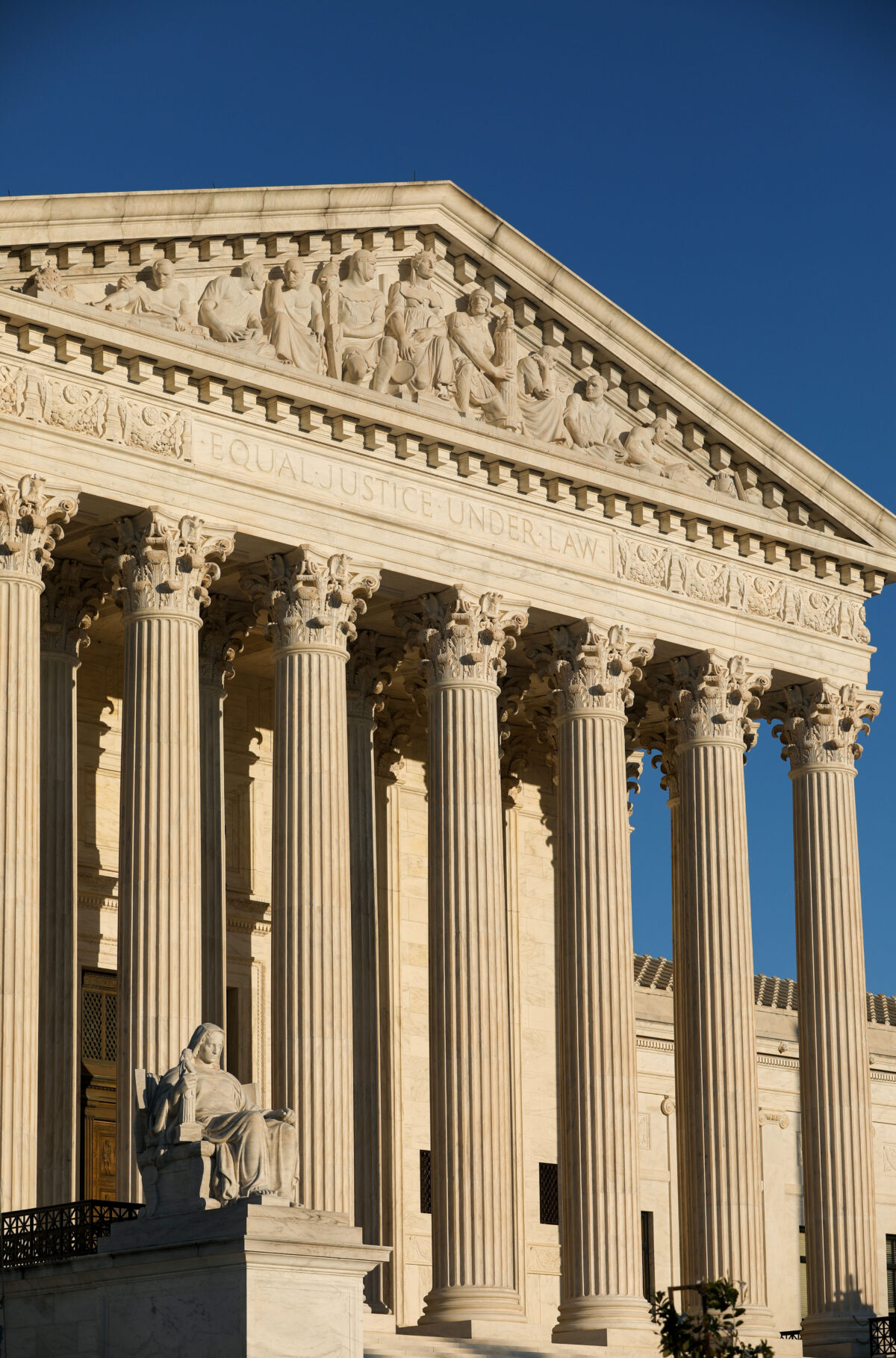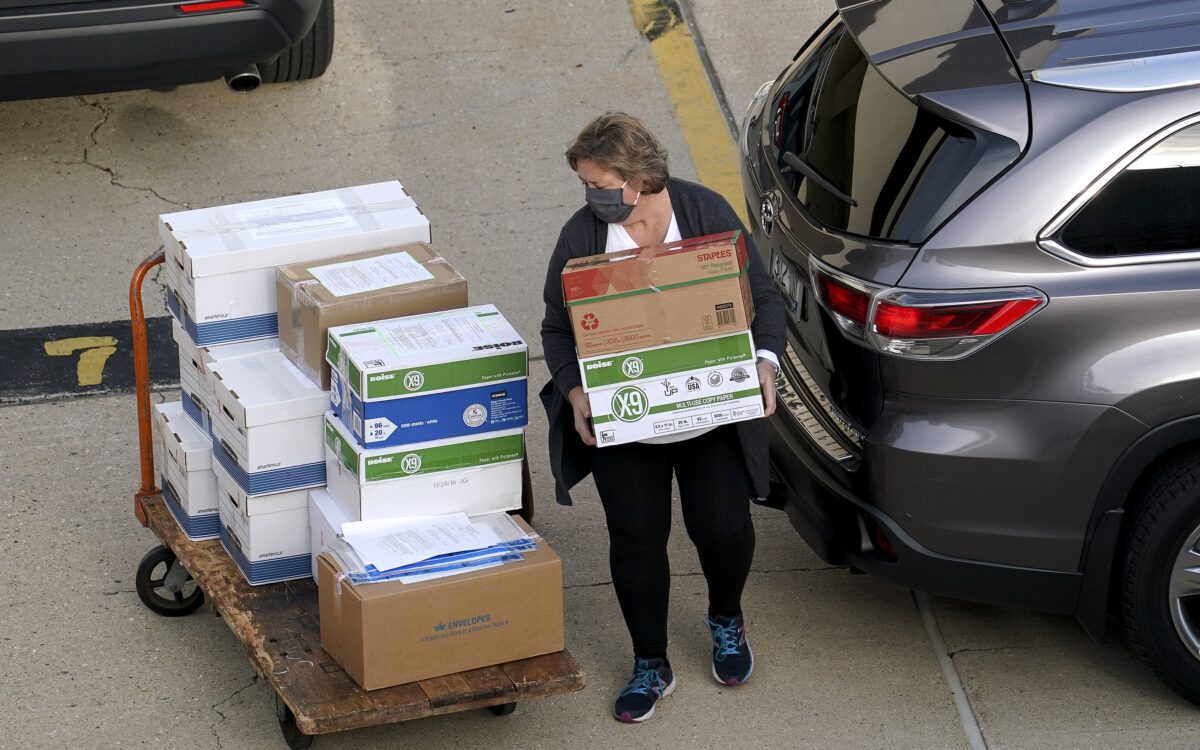Phill Kline: 2020 Election One of the Most Lawless in US History
A former state attorney general whose group is involved in election-related litigation in battleground states said Saturday that he believes the 2020 election was lawless.
“I think that this was one of the most lawless elections in U.S. history,” Phill Kline told The Epoch Times. That lawlessness has made it difficult for people to have faith in the election results, he added.
Kline, the former Republican Kansas attorney general, serves as director of the Thomas More Society’s Amistad Project, an initiative that works to preserve civil liberties.
“All you have to do is compare the conduct with what the laws are in the state legislature. And they used COVID fear to justify lawlessness, and within that lawlessness they created a system where we can’t have faith, and now we’re proving that all the flaws had a direct impact,” Kline continued.
“It’s real clear if people step back and look at it. This was a lawless election. And it was lawless in the same framework and design in all of these key swing states, particularly in the urban areas that are controlled by blue elected officials. The evidence is clear.”
Kline’s organization has brought or joined litigation in battleground states like Wisconsin and Michigan that challenge votes allegedly cast illegally. Democratic presidential nominee Joe Biden won the battleground states but President Donald Trump’s campaign and others have filed litigation challenging the results.
Kline believes election-related cases will end up with the Supreme Court.

“There is obvious evidence to present to the Supreme Court that a two tier election system was created with the help of private funds,” Kline said, referring to a Mark Zuckerberg-funded group that gave out grants to over 2,500 election offices across the country. Zuckerberg is the CEO of Facebook.
“I do think there’s also the possibility of state attorneys general and saying it’s wrong for states to manage elections so dramatically differently, and it disenfranchises the voters of one state as compared to another in the presidential election,” Kline added.
The Republican Attorneys General Association earlier this month urged the Supreme Court to overturn a Pennsylvania Supreme Court ruling that upheld a deadline extension for receipt of mail-in ballots. The Supreme Court later ordered Pennsylvania officials to segregate late-arriving ballots as justices weigh the matter.
President Donald Trump’s campaign is focusing on the Supreme Court as part of a two-pronged strategy in challenging the election results.
The problems in the election boil down to a simple premise, Kline said: was what happened different from what is outlined in state law? In his view, the answer is yes.
Pennsylvania officials, for instance, violated the Equal Protection Clause of the U.S. Constitution by making it more difficult to vote in Republican strongholds by placing more of the ballot boxes in Democrat strongholds, the former attorney general said.
In Wisconsin, state law requires voter identification for absentee ballots unless people are “indefinitely confined.” State officials violated the law by ordering areas not to check on voters who claimed they were confined as such, Kline charged. In Dane County, clerk Scott McDonnel told voters they could apply for the special voter status based solely on fear of COVID-19.
The relaxing of the law was highlighted in an Amistad lawsuit and a separate suit filed last week in the state.
Some 96,437 voters avoided the voter ID laws by claiming they were “indefinitely confined” even though they weren’t, according to the Amistad filing. Wisconsin officials also directed county clerks to fill out missing portions of mail-in ballots, another violation of state law, Michael Gableman, a former Wisconsin Supreme Court justice, told The Epoch Times.

In Wayne County, Michigan, individual inspectors from the Democratic party allegedly “cured,” or fixed, mail-in ballots without the required oversight and signatures of two election inspectors, according to a lawsuit that was later rejected by a judge. Unbalanced poll books led to county canvassing board members hesitating to certify the election results. They did so under pressure but later rescinded their votes.
Kline’s group brought legal challenges prior to the election. Some attempted to block states and local governments from accepting funds from Zuckerberg-funded group the Center for Tech and Civic Life. The Amistad Project argued the funds were going to primarily Democratic, urban areas, creating a two-tiered election system.
In other cases, the project represented voters alliance groups challenging changes made to election processes by state officials.
Those pre-election challenges weren’t successful.
“Here’s the issue with election standard: you have to show harm. And we were predicting the harm, predicting what would happen, but the courts were saying that you don’t have it. And sure enough, the prediction came true. We’re still fighting,” Kline said.
“Our laws to protect election integrity and recounts did not contemplate this election. We don’t contemplate drop boxes, we don’t contemplate all these things. And therefore, the recounts simply validate the fraud,” he added.
Kline believes his group will win the new lawsuits they’ve filed, but there’s time pressure because of the looming Electoral College votes and Inauguration Day.
Ivan Pentchoukov contributed to this report.
